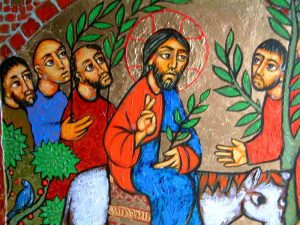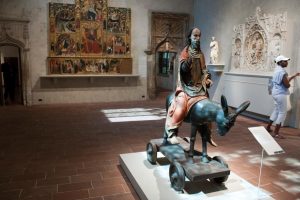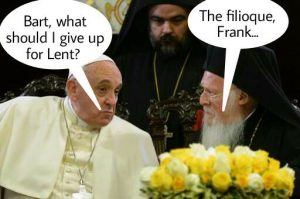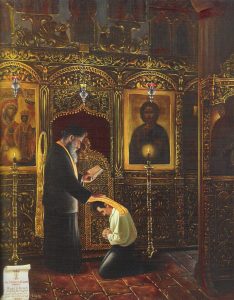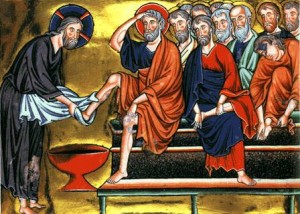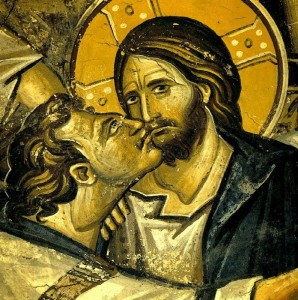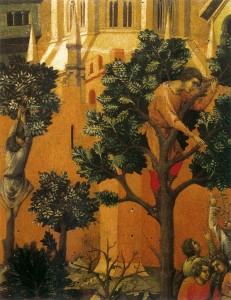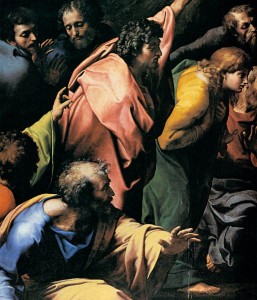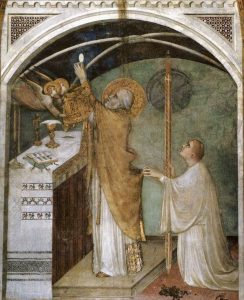 “This is a warning to all Catholics & Orthodox. Holy Week is Serious Business for serious disciples of Jesus Christ. The Sacred Rites (aka “ceremonies”) are not incidentally or accidentally lengthly. They are deliberately lush with the symbols of Worship at the heart of which is the Lord Jesus the Christ Himself. Entering into the Mysteries of the Triduum (Holy Thursday/Good Friday/Holy Saturday) sweeps us from lenten preparation and plunges us into the waters of Baptism where we drown to worldly allurements and arise to Easter Joy. These are deep waters, still waters where the testimony of the apostles and disciples churn among the testimonies of evangelists, martyrs, monks, nuns, and Households in Christ made holy through wives and husbands dedicated to Christian Living among truly heathen tribes and cultures. Here we join this communion of saints to refresh our souls, rededicate our bodily existence to the announcement of the Gospel — In Christ, God and Man are reconciled. May the Blessings of this Holy Week drive from us whatever is insipid and feeble. May it revest us with such Grace that will make us “strong, loving, wise” witnesses to Christ in this place and age.”
“This is a warning to all Catholics & Orthodox. Holy Week is Serious Business for serious disciples of Jesus Christ. The Sacred Rites (aka “ceremonies”) are not incidentally or accidentally lengthly. They are deliberately lush with the symbols of Worship at the heart of which is the Lord Jesus the Christ Himself. Entering into the Mysteries of the Triduum (Holy Thursday/Good Friday/Holy Saturday) sweeps us from lenten preparation and plunges us into the waters of Baptism where we drown to worldly allurements and arise to Easter Joy. These are deep waters, still waters where the testimony of the apostles and disciples churn among the testimonies of evangelists, martyrs, monks, nuns, and Households in Christ made holy through wives and husbands dedicated to Christian Living among truly heathen tribes and cultures. Here we join this communion of saints to refresh our souls, rededicate our bodily existence to the announcement of the Gospel — In Christ, God and Man are reconciled. May the Blessings of this Holy Week drive from us whatever is insipid and feeble. May it revest us with such Grace that will make us “strong, loving, wise” witnesses to Christ in this place and age.”
Courtesy of Fr. William Seifert
